When comparing Coursera vs Udemy in 2025, evaluating what each platform offers and how they align with your learning goals is essential.
With its university partnerships, Coursera provides academic-style learning, offering professional certificates and degree programs, while Udemy focuses on practical skills with a vast selection of affordable courses.
In this detailed comparison, I’ll walk you through course quality, pricing, instructors, and certificate value to help you make an informed decision.
As someone who has extensively researched both platforms, I aim to offer you clear, objective insights into which platform best fits your needs.
Let us begin!
Coursera vs Udemy: Quick Comparison
Before diving deep, let’s understand how these two leading online learning platforms stack against each other in key areas.
| Parameter | Coursera | Udemy |
|---|---|---|
| Best For | Academic certificates & degrees | Practical skills & quick learning |
| Price Range | Starting $39/ course | $19.99 to $199.99/ course |
| Free Trial | 7 days | 7 days |
| Course Format | Structured with deadlines | Fully self-paced |
| Instructors | University professors & industry experts | Independent instructors & professionals |
| Course Count | 7,000+ | 250,000+ |
| Certification Type | Accredited | Course completion |
| Free Content | ✅ | ✅ |
| Course Length | 4-12 weeks | 1-20+ hours |
| Quality Control | Strict vetting process | Varied quality standards |
| Mobile Learning | Full app support | Full app support |
New users can get the Coursera Free Trial for 7 days. Try the free trial before signing up for a specific course.
Platform Overview
Both platforms aim to make education accessible, but they take distinctly different approaches to online learning.
Coursera Overview
Coursera partners with over 325 leading universities and companies to deliver high-quality online education. Founded in 2012, it’s become a trusted platform for academic-style learning and professional development.
Coursera’s key features include the following:
- University-backed credentials
- Structured learning paths
- Peer-graded assignments
- Interactive quizzes
- Discussion forums
Udemy Overview
Udemy operates as a marketplace for knowledge, allowing experts to create and sell courses on virtually any topic. With over 250,000 courses, it offers incredible variety and flexibility.
Udemy key features include the following:
- Vast course selection
- Lifetime course access
- Practical skill focus
- Quick-start learning
- Regular price discounts
Comparing The Features Of Coursera vs Udemy
Understanding the differences between these platforms will help you make an informed choice about your learning journey. Let us see each one of them:
Coursera vs Udemy: User Interface
Coursera’s interface reflects its academic roots, organizing courses into structured specializations and degrees. The platform features progress tracking and an integrated calendar system that effectively helps students manage assignments and deadlines.
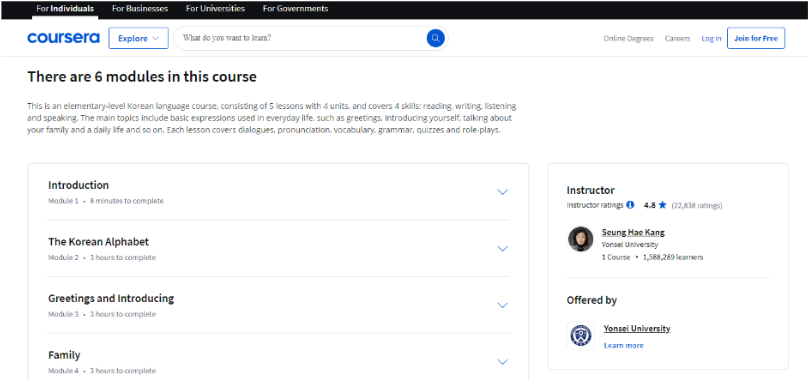
Udemy embraces a marketplace approach, similar to streaming platforms, with a video-centric interface and powerful search functionality. The straightforward design allows learners to find and start courses quickly, while features like built-in note-taking enhance the learning experience.

Verdict: Coursera prioritizes structure and academic organization, while Udemy focuses on accessibility and ease of use. Hence, Udemy wins for its UI.
Coursera vs Udemy: Course Instructors
Coursera’s instructor roster includes university professors and industry leaders from renowned institutions and companies. Each instructor undergoes thorough vetting, ensuring expert-level knowledge and teaching capability in their respective fields.

Udemy’s open platform attracts diverse instructors, from industry professionals to entrepreneurs. While experience levels vary, this approach often results in current, practical insights drawn from real-world experience rather than purely academic knowledge.
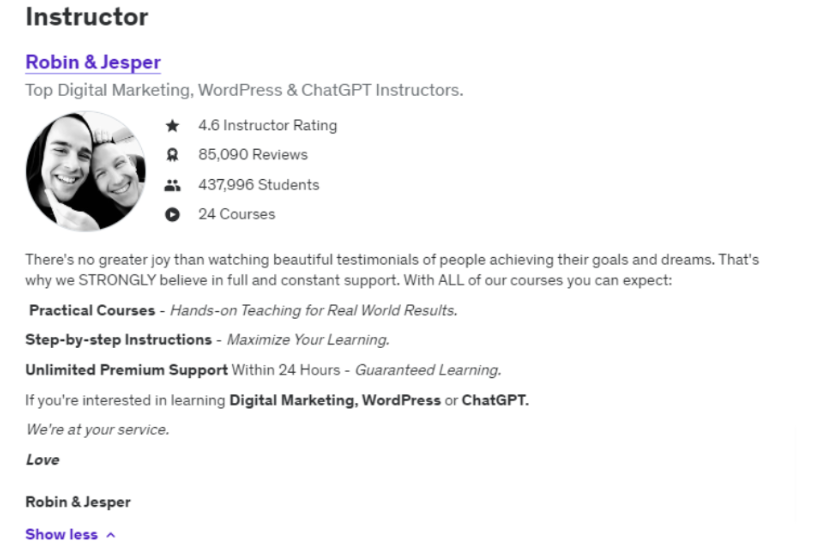
Verdict: Coursera offers academic expertise; therefore, Coursera is a clear winner here.
Coursera vs Udemy: Content Quality
Coursera’s content undergoes peer review and maintains university-level standards throughout each course. The platform ensures consistent quality through comprehensive syllabi, structured assignments, and regular content updates aligned with academic requirements.
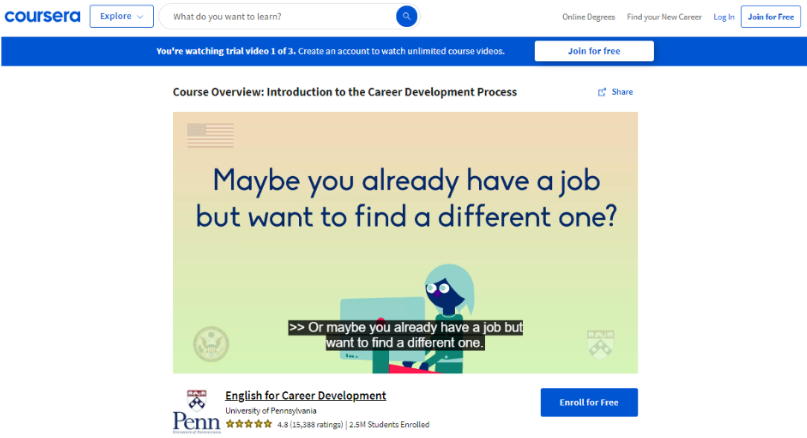
Udemy’s content quality varies but typically emphasizes practical application. Courses focus on real-world skills and current industry trends, often including hands-on projects. While quality isn’t uniform across the platform, top courses deliver excellent practical value.
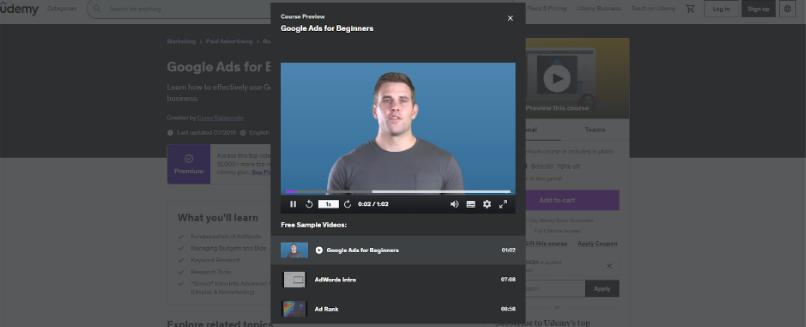
Verdict: Coursera guarantees online academic quality education, making it a winner.
Coursera vs Udemy: Courses Offered
Coursera specializes in structured academic programs, including professional certificates and complete degree programs. Their course catalog spans traditional university subjects while incorporating modern professional skills through partnerships with industry leaders.
Udemy offers many courses covering everything from technical skills to creative arts. The platform’s marketplace model allows for rapid expansion into emerging fields and niche topics that traditional education might not address.
Verdict: It is a tie! Choose Coursera for academic credentials and Udemy for diverse skill-based learning.
Udemy Vs Coursera Certificate Value
Coursera’s accredited certificates carry professional recognition. Upon completion, learners receive verified digital credentials that integrate with LinkedIn and can significantly enhance professional portfolios, especially in academic and corporate environments.
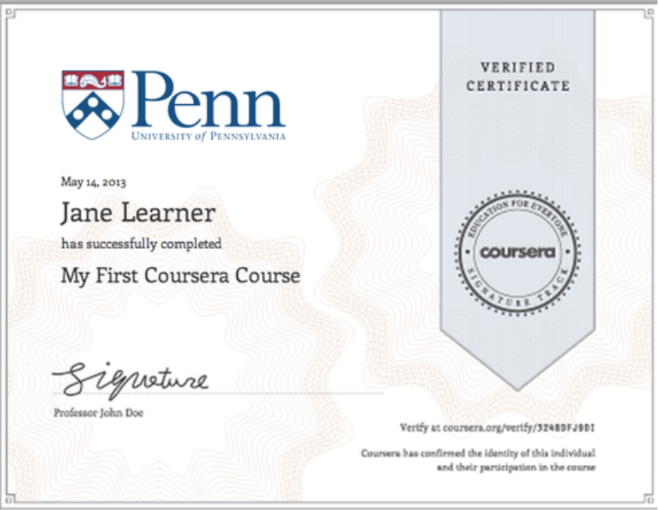
Udemy provides course completion certificates that demonstrate specific skill acquisition. While these aren’t university-accredited, they serve as valuable proof of practical knowledge and can be particularly useful for demonstrating self-initiated professional development.
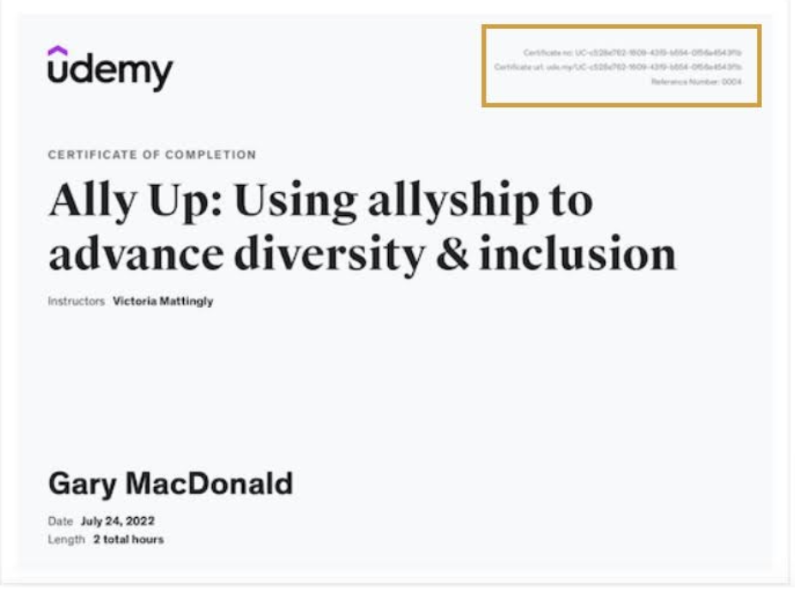
Verdict: Coursera’s certificates hold more academic weight than Udemy’s.
Coursera vs Udemy Cost
Coursera operates on a pay-per-course and subscription model monthly. A Coursera refund or money-back guarantee of 14 days is available only on a Plus subscription. Here is a breakdown of how much it costs:
| Plan Type | Cost | What’s Included? |
|---|---|---|
| Coursera Plus Annual | $399/year | Unlimited access to 7,000+ courses and certificates is included |
| Coursera Plus Monthly | $59/ month | Unlimited access to 7,000+ courses and certificates is included |
| Individual Course | $39-$99/month | Single-course access and one-course certificate |
| Degree Programs | $9,000-$45,000 | Full university degree with live sessions |
Learn more about Coursera cost in my article here, which will help you choose the best Coursera plan.
Udemy uses a per-course and subscription pricing model. Udemy refund can be requested in 30 days if you are unsatisfied with the course. Let us look at their rates:
| Plan Type | Cost | What’s Included? |
|---|---|---|
| Individual Course | $11.99-$199.99 | Lifetime course access |
| Udemy Monthly Plan | $35/ month | Access to 19,000+ top courses |
| Udemy Annual Plan | $240/year | Access to complete course catalog and Certification for all courses |
Verdict: Udemy courses and subscriptions are cheaper than Coursera.
Coursera vs Udemy: User Reviews And Testimonials
Coursera users consistently praise the platform’s academic rigor and structured learning approach. Students particularly value the interaction with peers and instructors, though some find the fixed deadlines challenging for busy professionals. Check these reviews out:
“Earning my Google Project Management: Professional Certificate is one of the biggest accomplishments I’ve made in my education, and it was a key stepping stone to my new career.”
- Adrienne
“Being a mother — especially a working mother means I’m constantly trying to juggle my schedule, my kids’ schedules, and work. I am very grateful for the flexible and remote learning programs that Coursera has to offer.”
- Kenia R.
Udemy learners appreciate the platform’s accessibility and practical focus. Reviews often highlight the ability to learn at their own pace and the variety of courses available, though some note inconsistencies in course quality.
“Udemy was truly a game-changer and a great guide for me as we brought Dimensional to life.”
- Alvin Lim
“Udemy gives you the ability to be persistent. I learned exactly what I needed to know in the real world. It helped me sell myself to get a new role.”
- William A. Wachlin
Final Verdict: Choose Coursera For Quality Courses And Accredited Certificates
The choice in the Coursera vs Udemy debate largely depends on your learning goals.
Coursera is ideal for those seeking formal education, academic certificates, or degree programs, with pricing starting at $39 per course.
It’s perfect for career advancement or those who prefer structured, instructor-led learning.
On the other hand, Udemy is a better choice for budget-conscious learners or those interested in acquiring practical skills quickly, with prices ranging from $11.99 to $199.99 per course.
If you’re ready to start, use both platforms’ free trials and free courses to explore the courses and see which works best for you!
FAQs
Coursera certificates generally carry more weight due to university accreditation and institutional backing, making them more valuable for formal career advancement.
Employers widely recognize Coursera certificates, especially those earned through university partnerships and professional certification programs.
Coursera certificates hold significant value, particularly in academic and corporate environments where formal credentials matter for career advancement.
Each serves different needs: Coursera for academic credentials, edX for university-style courses, and Udemy for practical skills and flexible learning.
Employers value Udemy certificates as proof of initiative and specific skill development, though they carry less weight than accredited credentials.
Udemy certifications are respected as evidence of practical skill development and self-directed learning, particularly in technical and creative fields.

I’m Ishan from Toronto, dedicated to simplifying online education choices. I explore and review eLearning platforms and courses. My insights are shared on “Enlightened Learning,” helping learners make informed decisions. Passionate about making education accessible and engaging for all.
